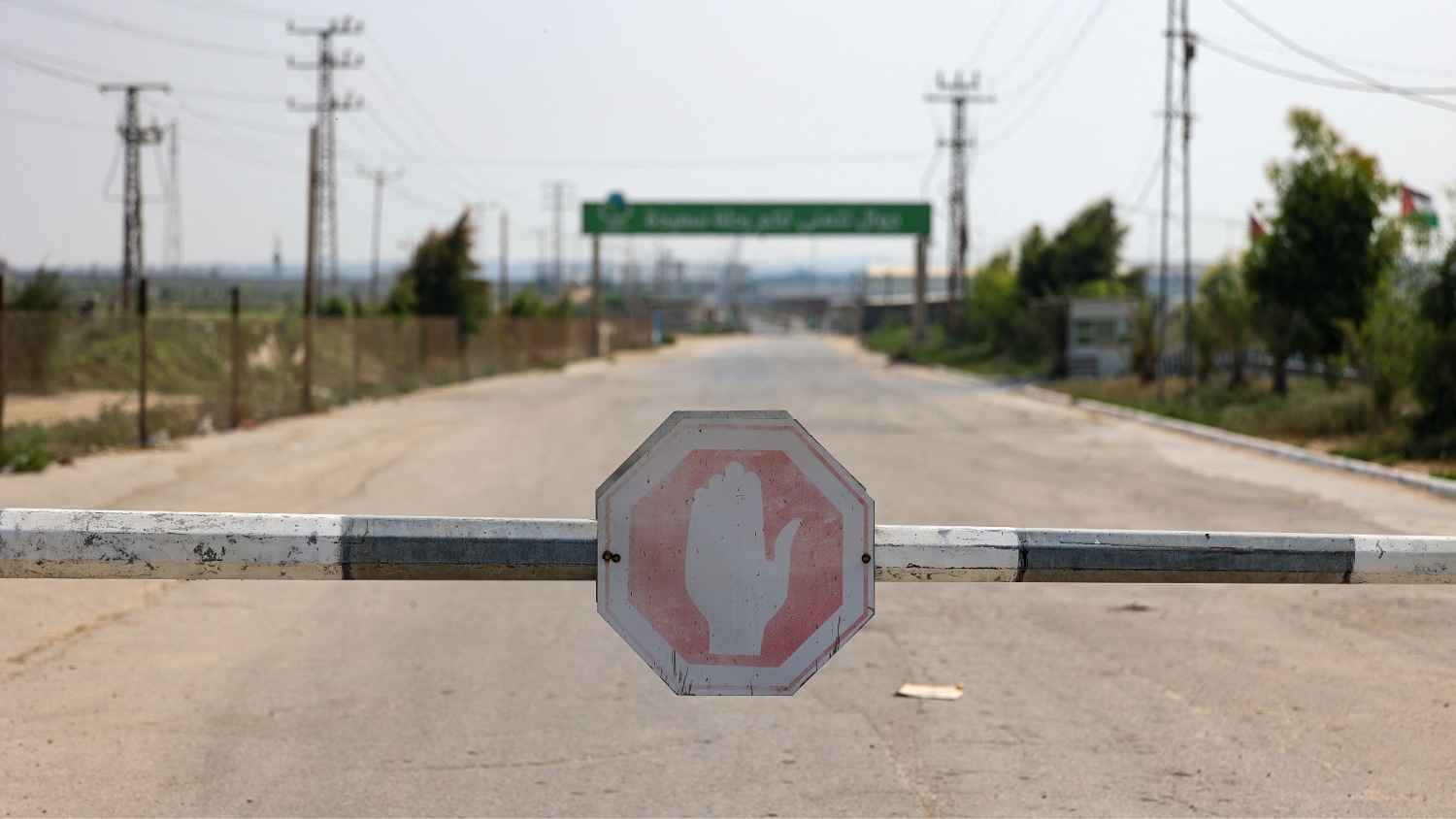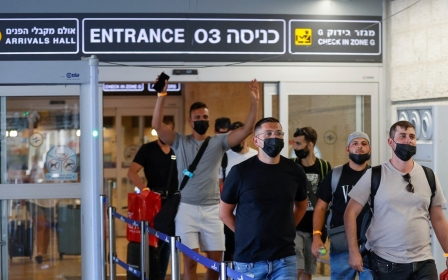Rights groups question Israel's inclusion of Gaza in visa waiver trial

Israel has announced it will "ease travel" into its ports of entry for Palestinian Americans from Gaza, as part of its effort to meet US conditions for the visa waiver programme (VWP), but rights groups in the US are skeptical that the claim represents genuine reciprocity.
According to the US embassy in Israel, those registered on the Palestinian population registry for Gaza have new procedures for short-term entry and exit to and transit through Israel, effective the afternoon of 11 September. However, the embassy website shows a number of stipulations regarding entry procedures.
For example, a US citizen and Gaza resident who has spent more than 50 percent of the last five years in Gaza (as confirmed by the Israeli government) can apply for a permit to enter Israel through the Erez Crossing. If they are outside of Gaza at the time of applying, they can apply for entrance through any international port of entry.
Of those American citizens who are Gaza residents and have spent more than 50 percent of the last five years outside of Gaza, they can enter Israel with their US passports and without a visa for business or tourism for 90 days, including transiting Israel to and from the West Bank.
But US citizens cannot use their US passports for transiting from Israel to Gaza.
Chris Habiby, national government affairs and advocacy director at the American-Arab Anti-Discrimination Committee, says that the process is now starting to cater to Gaza residents to some degree, "But from what I can tell, it just looks like a continuation of the separate and unequal system that they're setting up."
Habiby added that the process for Americans from Gaza is overly complicated, and has created additional tiers of access in what was already a multi-tiered system for Palestinian Americans.
"Even within Palestinian Americans from Gaza, there's different rules depending on how long you've spent in Gaza over the previous five years," Habiby said.
"And then, if a Palestinian American from Gaza (resident of Gaza) wants to figure out where they end up [within those tiers], the information that Israel is requesting of them is overly invasive. I mean, we're talking pay stubs, and they just - it's beyond the pale," Habiby told Middle East Eye.
The announcement from the US embassy in Israel comes after more than a dozen Democratic lawmakers on Friday sent a letter to the Biden administration warning against moving forward with allowing Israel to be a part of the programme.
"The contacts we have had from US citizens seeking to travel to Israel since the MoU went into effect, it is clear that Israel is not in compliance with this law as it relates to reciprocal treatment for all US citizens, and is not on track to come into compliance before the September 30, 2023 deadline," the senators said.
The letter was spearheaded by Senator Chris Van Hollen and Brian Schatz.
'Rushed and inefficient'
The US visa waiver programme permits overseas visitors to remain in the US for up to 90 days without a visa, reciprocating the same privilege to US citizens in participant countries. Israel has long sought inclusion in the initiative.
In July, US ambassador to Israel Thomas Nides and Israeli President Isaac Herzog, who was on a visit to Washington, signed a “reciprocity agreement” to allow American citizens the ability to freely enter Israel.
In July, the US announced it would be monitoring Israel and the treatment of Americans entering the country over a period of six weeks, then make a decision about whether or not to allow Israel's entry into the VWP by 30 September.
If Israel is successful in meeting US conditions, implementation of the VWP will take effect in November of this year.
But several experts on US policy on Israel-Palestine have raised concerns that Washington is rushing through its assessment without proper scrutiny.
Ayah Ziyadeh, advocacy director at Americans for Justice in Palestine Action (AJP Action) says that implementing new entry procedures near mid-September does not leave enough room for an efficient trial period.
"While the overall trial period for VWP has been short and ineffective enough not to determine whether Israel will reverse decades of discrimination, Gaza's inclusion signifies how rushed and inefficient this whole process has been," Ziyadeh told MEE.
"They were not included from the very beginning, and including them 19 days before the final decision is to be made, is entirely irresponsible of the United States."
AJP Action argues that the current terms of the MoU between Israel and the US leave too much room for loopholes to signal genuine reciprocity from the Israelis that "guarantees that Palestinian Americans will continue to be treated differently than other travellers".
"Even though it was made more accessible for Palestinian Americans to enter Palestine and its occupied territories during the trial period, they were not treated as equals during the visa waiver trial period," Ziyadeh said.
"There have been instances of discrimination, unjust security labelling, and challenges in the visa application process that display unequal treatment compared to other American citizens."
AJP Action has said that while there is more accessibility for Palestinian Americans than before, there has also been an opaque visa application process and access restrictions where Palestinian Americans can only use particular ports of entry, unlike travellers with non-Palestinian heritage.
"The Visa Waiver Program must embody fairness, non-discrimination, and genuine reciprocity principles. The current situation with Israel's impending entry into the VWP fails to meet these essential standards," Ziyadeh said.
Middle East Eye propose une couverture et une analyse indépendantes et incomparables du Moyen-Orient, de l’Afrique du Nord et d’autres régions du monde. Pour en savoir plus sur la reprise de ce contenu et les frais qui s’appliquent, veuillez remplir ce formulaire [en anglais]. Pour en savoir plus sur MEE, cliquez ici [en anglais].





